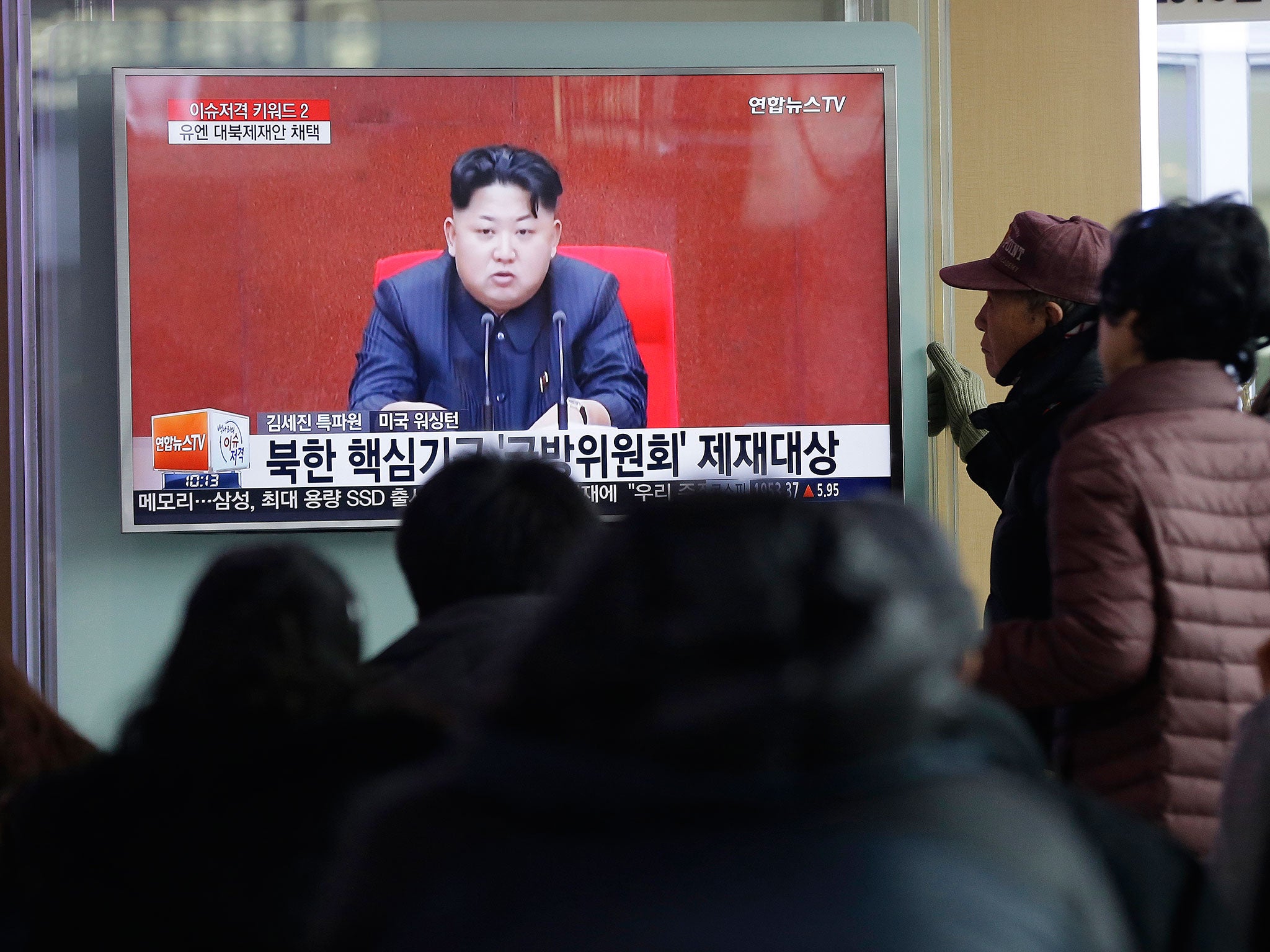North Korea told to 'choose a better path for its people' by President Obama as it fires missiles into Sea of Japan
US President issues warning as harsh new UN sanctions are imposed, but rogue state responds defiantly with latest weapons test

In a symbolic act of defiance, North Korea has greeted the imposition of harsh new UN sanctions by firing a volley of missiles into the sea off the eastern coastal town of Wonsan. They landed harmlessly some 90 miles away from land – but analysts warned that there are likely to be more pointed reactions in the months ahead.
The new measures, which were unanimously passed by the UN Security Council, are the fruit of seven weeks of negotiations between the US and China, Pyongyang’s northern neighbour and increasingly reluctant ally. They were triggered after Pyongyang claimed to have tested a hydrogen bomb for the first time.
“The international community, speaking with one voice, has sent Pyongyang a simple message,” said President Barack Obama as he confirmed the sanctions. “North Korea must abandon these dangerous programmes and choose a better path for its people.”
But there is little confidence that the measures, the harshest and most comprehensive for two decades, will force Pyongyang back to the conference table.
New measures targeting the north’s nuclear programme include a ban on the export of coal, iron and iron ore, the earnings from which are used to fund the nuclear and ballistic missile programmes, and on the import of fuel oil, including rocket fuel. But China was adamant that the new sanctions should not bring the economy of the north to the point of collapse. And analysts were quick to point out loopholes which Pyongyang could exploit to keep the weapons in development.
It was pointed out that North Korea will still be permitted to sell minerals and import oil as long as they can claim that the trade is necessary for the livelihood of the civilian population. “In this way, China and Russia can control the degree of sanctions,” commented Professor Hajime Izumi of Japan’s University of Shizuoka.
“The [sanctions] resolution is designed to keep North Korea barely alive, but not to kill,” commented Toshio Miyatsuka, director of Japan’s Korea Institute. A South Korean think-tank, the Korea Economic Research Institute, argued that only if all the north’s exports of natural resources were blocked outright would the sanctions be effective.
Few observers expect Pyongyang to agree to talks because of the sanctions. Instead, sales of mineral resources ostensibly to benefit the civilian population will instead keep the military programmes alive. Once again, it will be the ordinary people who find themselves in the line of fire.
Samantha Power, the US Ambassador to the United Nations, insisted that the sanctions were not intended to have “adverse humanitarian consequences” for civilians, but conceded that North Korea’s prioritisation of nuclear and ballistic programmes over the needs of its people is “part of the perverse reality that has no equal in the world…Virtually all of [North Korea’s] resources are channelled into its reckless and relentless pursuit of weapons of mass destruction.”
“When they tighten their belts,” echoed John Delury, assistant professor at Yonsei University in Seoul, “the last thing they cut is the military.” He pointed out that more than one million people died of starvation during the famine of the mid-1990s. “Did they cut their military then? No.”
The firing of missiles into the sea was regarded as a token act by Pyongyang, but there may be more lively responses to come. Next week, the US and South Korea will begin joint military exercises in the peninsula. These are routinely condemned by the North as acts of aggression, and the US’s planned deployment of a new missile defence system, the Terminal High Altitude Area Defence or THAAD, is expected to raise the stakes.
Join our commenting forum
Join thought-provoking conversations, follow other Independent readers and see their replies
Comments